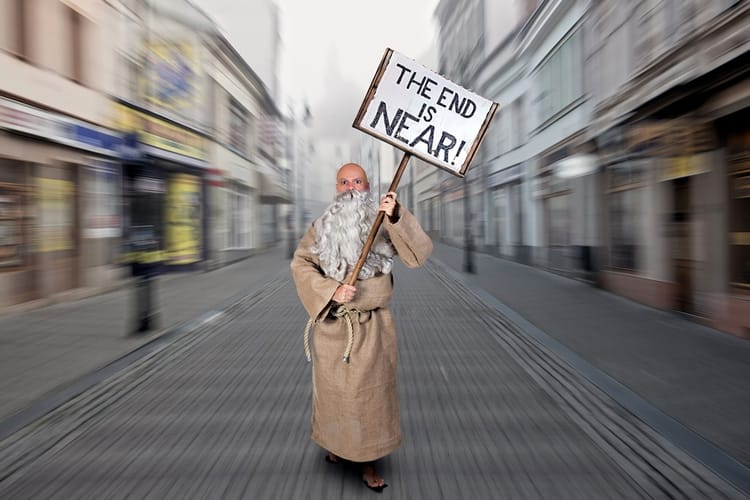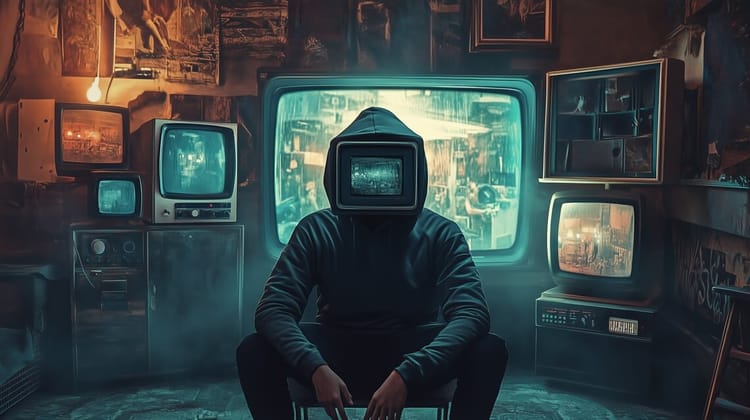When Will The Collapse Kill Me?

When I realized that civilization is going to collapse in my lifetime, my first question was, “How long do we have?” It’s a natural question. Usually, when someone gets a terminal cancer diagnosis, “How long do I have?” is the first thing they ask.
Unfortunately, whether we’re talking about cancer or the collapse of civilization, no one can give a definitive answer. If a doctor tells a cancer patient, “About a year,” that’s really only a guesstimate. It could be a lot longer — or a lot shorter.
When people ask me when civilization will collapse, I often say, “It’s already collapsing.” This annoys them, and they usually say something like, “Yea, I get that it’s already collapsing, but when will it really collapse?” I wonder how a doctor would react if his patient said, “Yea, I get that I have cancer, but when will I really get cancer?”
The question they’re trying to ask is, “When will the collapse kill me?” They want to know when they can expect to die from heat, disease, violence, starvation, dehydration, or one of the countless other ways that collapse will cut people’s lives short.
I’ve given this question a lot of thought since I became collapse-aware in 2020. Back then, I figured that collapse wouldn’t claim the lives of myself and my loved ones until at least 2050. But over the next year, I did a lot of research, reading books and articles about peak oil and climate change, and hanging out on subreddits like r/collapse.
By 2022, I concluded that we would probably live until at least 2040. Again, only a guesstimate, but the idea of still being alive in 2050 now seemed impossible. Under a worst-case scenario (which is how things have played out so far), we would see at least 2.5°C of warming by 2050, along with well over 1 billion climate refugees.
Based on how things are going at a mere 1.3°C of warming, I simply can’t imagine our global food system surviving all of that. There would be so many crop failures that food production would fall far short of demand, and many of the world’s farmers would be too busy fleeing for their lives to grow crops.
But lately, even 2040 seems optimistic. A couple years ago, a paper was published in the journal, Applied Energy. It explained that the EROI (energy-return-on-investment) of oil is declining exponentially. Currently, we use about 16% of energy from oil just to pump more oil out of the ground, but by 2040, it will be as high as 37%.
This means that the net energy from oil will go down even as our emissions go up. You can see what I mean in this graph. The amount of oil available to the market is about the plateau. And in 10 years or so, it will start declining rapidly.
The official narrative is that we will get off of oil and switch to green energy, but this is a fantasy. Oil is the lifeblood of global industrial civilization.
Not only do we need oil to transport goods around the world on diesel-powered trucks and ships, we need oil to create thousands of everyday items we take for granted: Plastics, cosmetics, medicines, lubricants, adhesives, cleaning products, and much more.
Yes, some of these products could be made without oil. For example, hemp could be used to make plastic (although that could be difficult as we’re already using all of the arable land), but it won’t be cheap. Whether we use oil or not, everything is going to get a lot more expensive.
Now consider the fact that we are already in a global food crisis with more people going hungry every day due to the high cost of food. In 10 years, we’ll be well beyond 1.5°C of warming and approaching 2°C. Crop failures will be even more common, water shortages will be widespread, and we’ll have less energy to work with.
It’s the worst of both worlds. Peak oil and climate change are going to hit us hard at about the same time, not to mention ecological collapse due to the sixth mass extinction, but I’ll save that for another article.
So now, I figure I’ll probably live until at least 2030. After that, I don’t know. It’s possible there could be technological breakthroughs in food and energy production that kick the can farther down the road.
But honestly, does it really matter? What’s the point of trying to figure out how long we have? I could die tomorrow, and all this guesstimating would have been pointless.
Even if I could find out the exact date and hour that I’m going to die, would it change anything? Of course not. I would still live my life the best way that I can — doing things I enjoy, spending time in nature, and hanging out with loved ones.
So I’ve decided not to worry about it anymore. When people ask me when civilization is going to collapse, my answer is still, “It’s already collapsing.”
If you could find out exactly when the collapse will take your life, what would you do differently? Would you reconnect with old friends? Spend more time with your family? Read a book you always wanted to read? Learn an instrument you always wanted to play?
If so, why aren’t you doing these things right now? Given the fragility of our supply chains and power grids along with the increasing threat of nuclear war, it could all come crashing down by the end of the decade.
Time is running out. Use what’s left of it wisely.





Member discussion